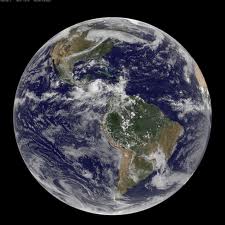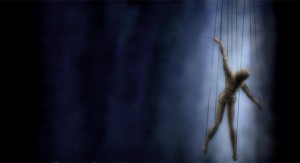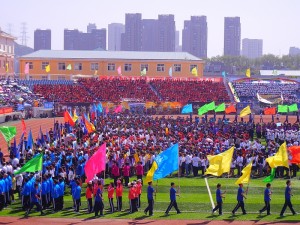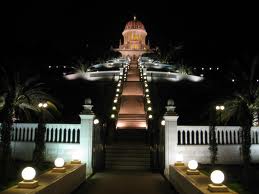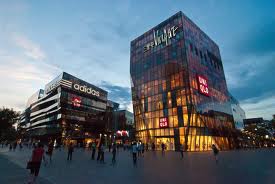(Or is that DISorientation?)
(Or maybe a simple case of disappointment? )
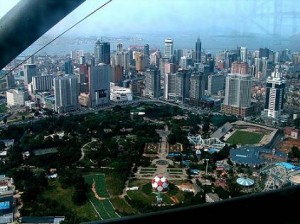
Downtown Dalian: Labour Park and Highrise Central. No view of the hills, or of the sea, that highlight this windswept little village of six million.
They’ve had a tropical summer in Dalian. My dry, windy Chinese city had wild thunderstorms last night and remains a humid mess of clingy air and greyness. Usually, the ocean winds blow away the smog, but not today. (Maybe it’s not all car exhaust this morning.) The gardens at the top of our hill are taller and more riotously green than I’ve seen them. The weeds make visions of compost dance in my fevered head. The last few weeks of our Canadian summer, plus a weekend near Los Angeles, were bright but surprisingly cool for August. Here, I go through several shirts a day, and I’m not even trying to move much.
Marching music plays on an endless loop from the college next door, where this year’s pseudo-scholarly inputs are being put through their paces, without a hint of a metaphor. Their introduction to higher education, these future hairdressers and kitchen hands of China as well as their more highly tested university counterparts, is to march and march. There are team-building, patriotic and letting-off-steam aspects to the drill, but as bystanders our experience is one of martial music on repeat, amplified exhortations and ceaseless counting: Yi! Er! San! Si! Yi, er, san! Si!

